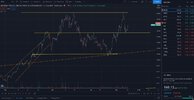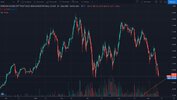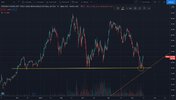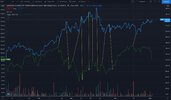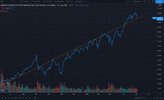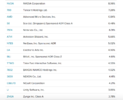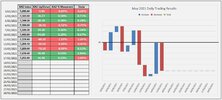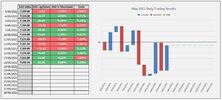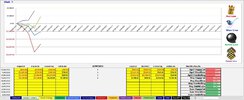- Joined
- 28 December 2013
- Posts
- 6,392
- Reactions
- 24,319
just looking at ESPO, this is close to a bottom. I would't be buying it tomorrow, it needs to build some technical structure, but this is potentially close to an excellent entry point. It's now on my watch list.
jog on
duc
The 2nd blue bar
When the first daily bar turns blue that would be the signal bar. The 2nd blue would be the entry for me.
Skate

